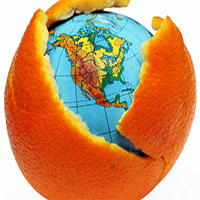Seven of the eight planets of the Solar System are named after Greek or Roman gods, with the exception of Earth.
The truth is, the word “earth” is derived from the Old English term “eorþe” . Eorþe has many meanings such as “earth”, “ground” and “country”. However, the story doesn’t start there.
Old English, the predecessor of modern English, was spoken until about 1150 AD, evolving from a family of languages that scholars refer to as “Proto-Germanic “.
German today is also part of the above language family. Thus, “Earth” and “eorþe” are related to the modern German word “Erde” . In German, the word “Erde” means Earth or dirt.

No research has yet found a name for the Earth.
Back in 1783, the German astronomer Johann Elert Bode named the seventh planet from the Sun – Uranus “Uranus” (after a Greek god). And although Pluto is no longer considered a planet, we do know that 11-year-old Venetia Burney named it in 1930.
So who named our planet “Earth” , or more precisely, from who decided to take the word “earth” (originally meaning “earth”) as the planet’s name? Unfortunately, the identity of this person has been forgotten over time, no research has been able to find it.
However, it is clear that while Mercury, Venus, Mars, Jupiter, Saturn, Uranus, and Neptune all began as proper names for ancient gods, “Earth” did not. That’s why our planet is sometimes called “earth” without capitalizing the “e”.

